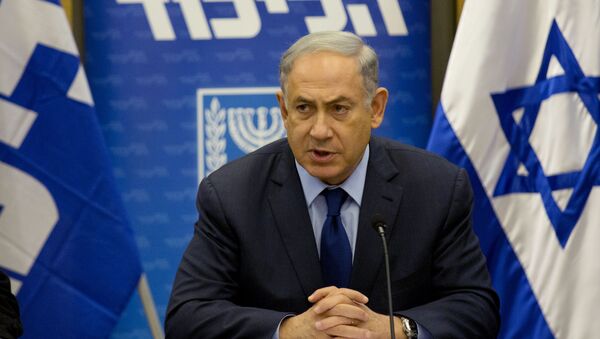Israeli Prime Minister Benjamin Netanyahu warned in a brief statement on 18 September that the choice facing Israel now is one between a government led by him and a "dangerous government" that would cooperate with "anti-Zionist Arabs".
"Now more than ever, with the vast security challenges that lie ahead for the country, a government must not be established that depends on anti-Zionist Arab parties. That’s our commitment to the country and to our voters”, Netanyahu said.
He further stated that his Likud party has already negotiated to start talks with five right-wing parties, Shas, United Torah Judaism, National Union, Jewish Home, and New Right, to form the next government that would be led by Netanyahu.
"The national camp will move forward together and, with God’s help, we will establish a strong, Zionist and good government for the State of Israel together", the prime minister stated.
According to the preliminary results, Netanyahu's Likud party is in a tight race with the opposition Blue and White coalition led by Benny Gantz, trailing it by one seat. Neither has managed to gain a majority and will have to engage in coalition talks to form a government. Ahead of the elections, Israeli media reports suggested that some Likud members were mulling ousting Netanyahu in a bid to enter into a coalition with Gantz's party.
The last general election was held in April 2019, but Likud failed to negotiate a coalition before the deadline to achieve a majority in the 120-member Israeli parliament, the Knesset. This, in turn, triggered a fresh election that was held on 17 September.



